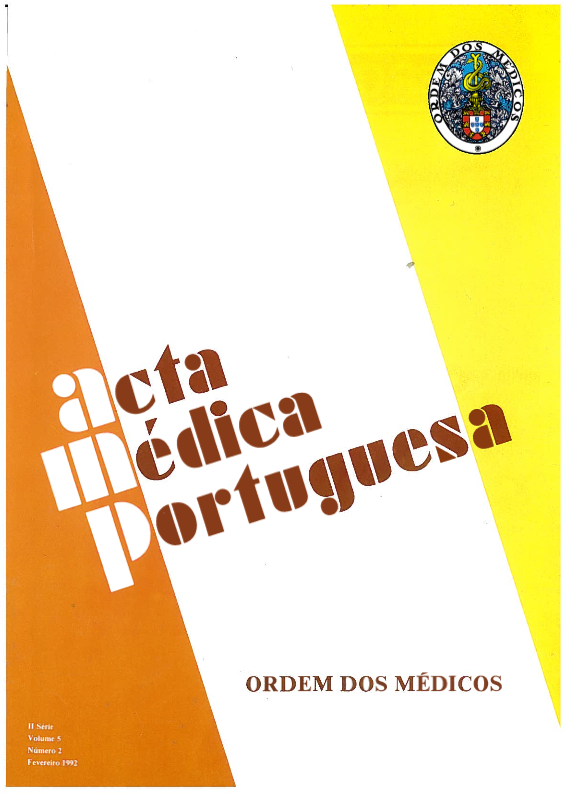Avaliação da gravidade de doentes ventilados numa unidade de cuidados intensivos respiratórios pelo sistema APACHE II.
DOI:
https://doi.org/10.20344/amp.3199Resumo
APACHE II system, is a simple and inexpensive method to evaluate severity of Intensive Care Patients. In a 2 years period (between 1988 and 1990), grading severity using APACHE II system, was performed on 498 consecutive mechanical Ventilated Patients in a Respiratory Intensive Care Unit. APACHE II was higher in COPD patients, but patients with Pneumonia and Organophosphate Poisoning had higher mortality. Correlating the different components of APACHE II with the results, we verified that Prognosis was not influenced by the Previous Health Status. Mortality was higher with increasing age, in patients with COPD and Organophosphate Poisoning. APS was the most important index for prognosis. Patients with Pneumonia and Organophosphate Poisoning had the highest APS. The Authors conclude that APACHE II is an objective and not time consuming method to evaluate severity in ICU Patients. However indexes measured on the first 24 hours of ICU staying are a result of severity of illness, treatment performed and time elapsed before ICU admission, and, this may be a possible source of bias when comparing different Unit results.Downloads
Downloads
Como Citar
Edição
Secção
Licença
Todos os artigos publicados na AMP são de acesso aberto e cumprem os requisitos das agências de financiamento ou instituições académicas. Relativamente à utilização por terceiros a AMP rege-se pelos termos da licença Creative Commons ‘Atribuição – Uso Não-Comercial – (CC-BY-NC)’.
É da responsabilidade do autor obter permissão para reproduzir figuras, tabelas, etc., de outras publicações. Após a aceitação de um artigo, os autores serão convidados a preencher uma “Declaração de Responsabilidade Autoral e Partilha de Direitos de Autor “(http://www.actamedicaportuguesa.com/info/AMP-NormasPublicacao.pdf) e a “Declaração de Potenciais Conflitos de Interesse” (http://www.icmje.org/conflicts-of-interest) do ICMJE. Será enviado um e-mail ao autor correspondente, confirmando a receção do manuscrito.
Após a publicação, os autores ficam autorizados a disponibilizar os seus artigos em repositórios das suas instituições de origem, desde que mencionem sempre onde foram publicados e de acordo com a licença Creative Commons









